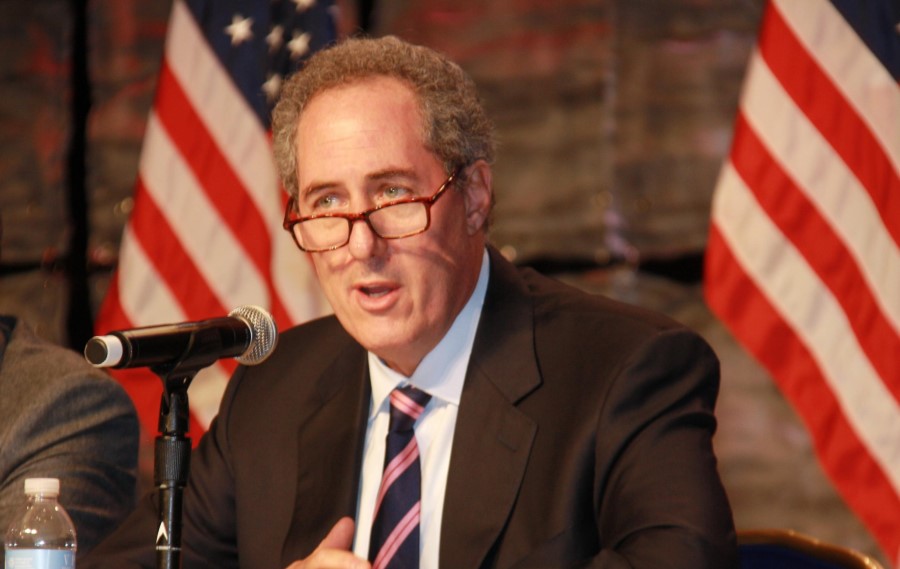As part of the the National Cattlemen 's Beef Association’s annual Legislative Conference this morning, Ambassador Michael Froman, U.S. Trade Representative, stressed the cost of inaction on the Trans Pacific Partnership.

“For the past seven years, the Obama Administration has worked together with NCBA to expand export markets for American beef and cattle,” said Froman. “In that time, United States beef exports have more than doubled, rising from $3.1 billion to $6.3 billion last year. However we have more work to do together – most especially, guaranteeing that American ranchers and farmers across this country see the full economic grains the TPP will mean for them and their communities. For example, by 2030, two-thirds of the world’s middle class will call Asia home. However, exports of American beef to countries in the TPP are being hit with tariffs as high as 50 percent, and face all manner of non-tariff barriers. This high-standard agreement cuts over 18,000 foreign taxes on U.S. exports, opens markets for American ranchers and farmers in one of the world’s fastest-growing regions, and advances regulations that are transparent and based on science.”
Froman stressed that U.S. beef exports would increase by 444 million pounds as a result of TPP, resulting in increased cash receipts totaling $1.14 billion.
“All told, it’s estimated that TPP will boost annual net farm income in the United States by $4.4 billion,” said Froman. “With these benefits at hand, the cost of inaction is alarming – together, let’s ensure we never pay them.”
The message resonated with cattle producers who experience daily erosion of U.S market share in leading export markets like Japan. NCBA Vice President Kevin Kester said the U.S. must continue to embrace trade and expand market access for its products.
“The U.S. cattle industry relies on international trade to add value and stabilize markets,” said Kester. “Global consumers demand high quality U.S. beef muscle cuts, but exports are especially critical in adding value to otherwise undervalued cuts such as variety meats and offal. While they have little value domestically, cuts such as tongue and tripe, fetch premiums in the Asia and Pacific Rim markets. There are no other global markets that can absorb that demand if we cannot remain competitive in the Pacific.”
Following Ambassador Froman's address, the Ambassador met with the media on a teleconference- and defended the negotiation of the TPP by the Obama Administration. You can hear the News Conference conducted by the Ambassador by clicking on the LISTEN BAR below.
Later today, an estimated 300 cattle producers from across the country are hitting Capitol Hill to meet with their Congressional representatives.
“Swift passage of TPP is the top legislative priority for cattle producers, and we need to see passage of TPP this Congressional session,” said Kester. “There is simply no better way to show Congress the importance of this issue than cattlemen and women meeting directly with their Representatives and Senators. Capitol Hill needs to understand that delaying action on TPP is costing cattlemen real money.”
Click here to see more...